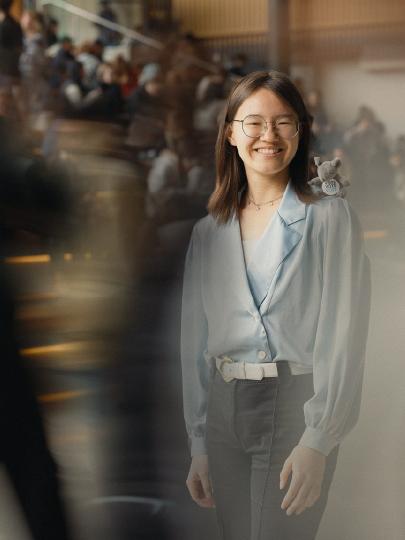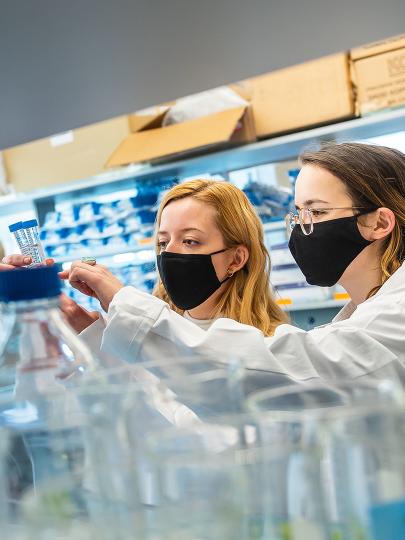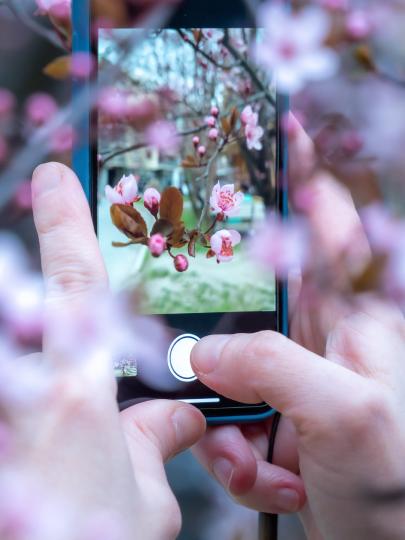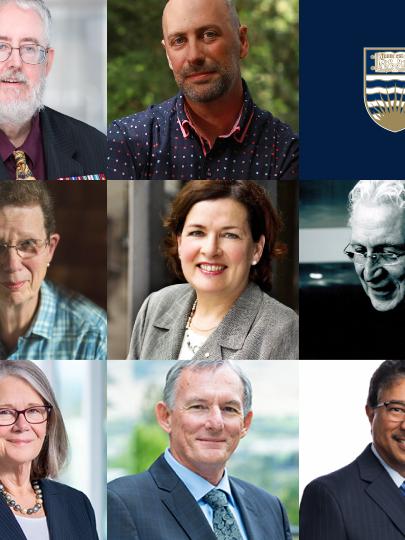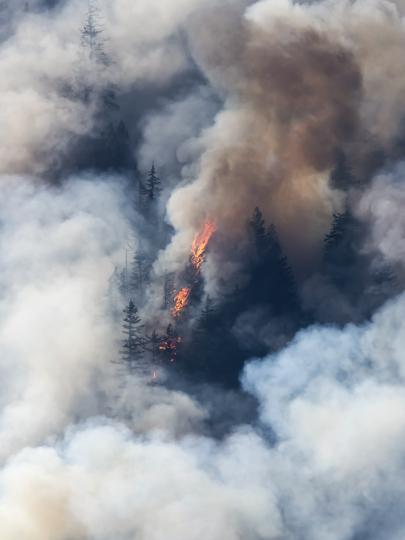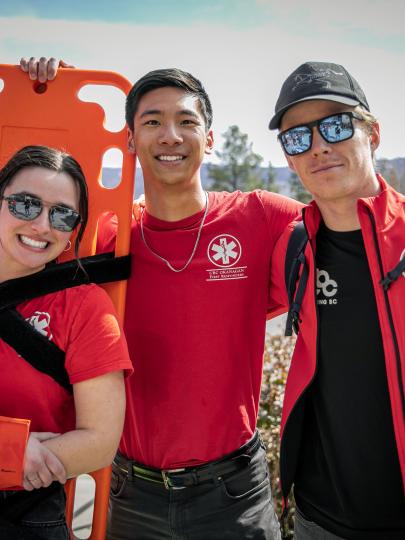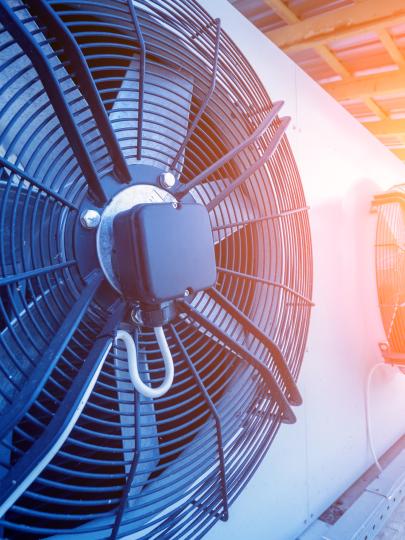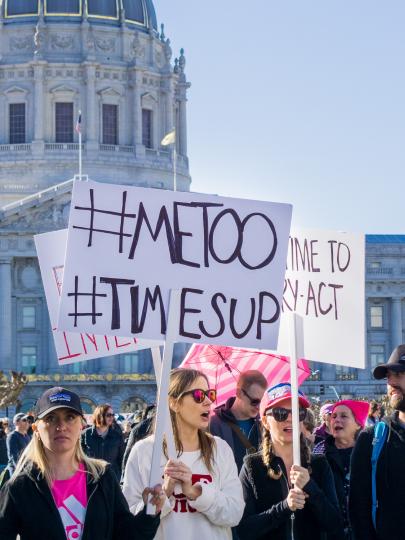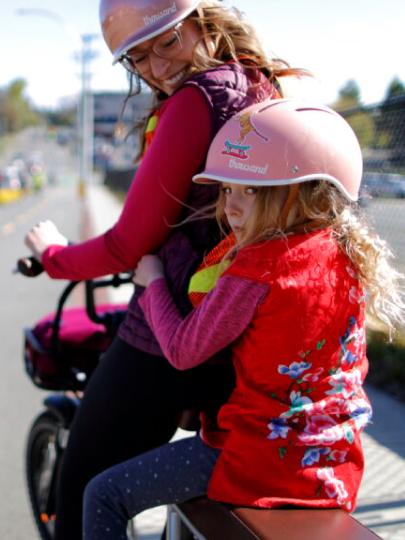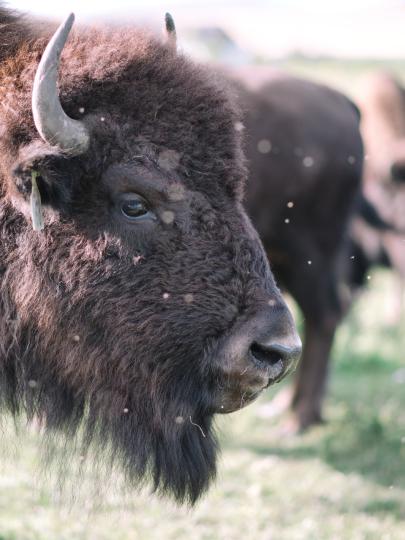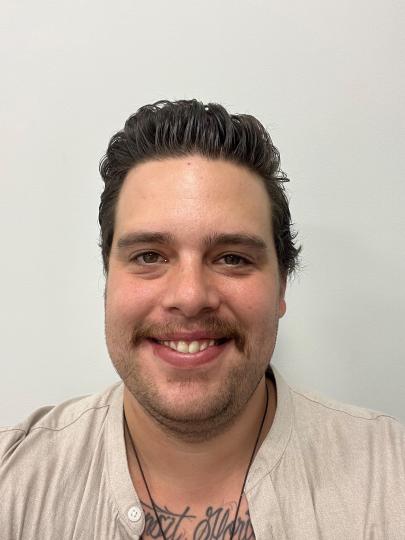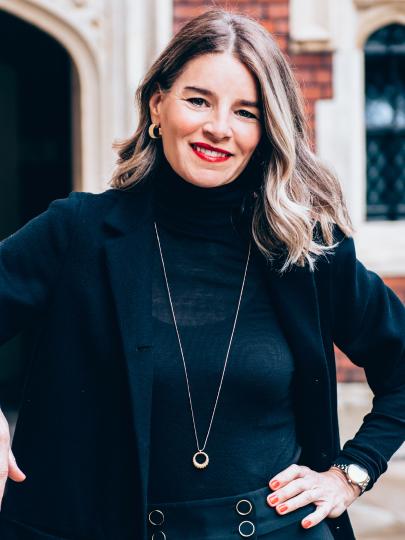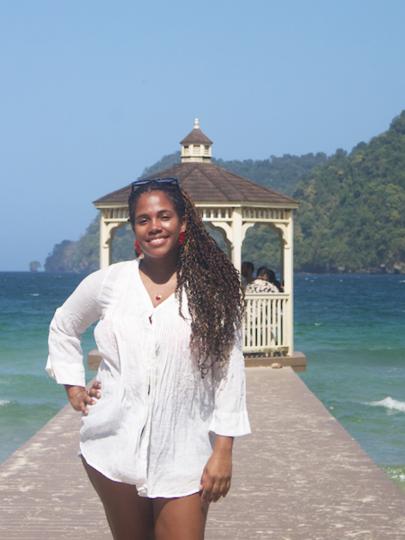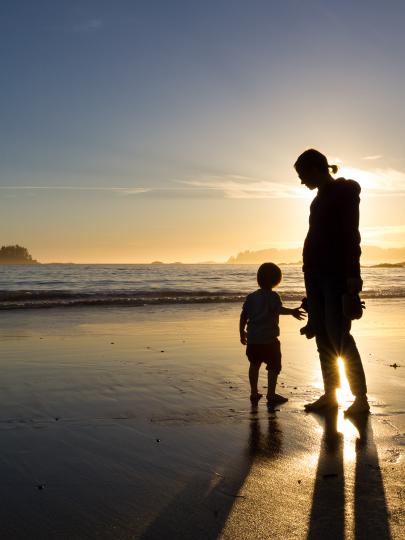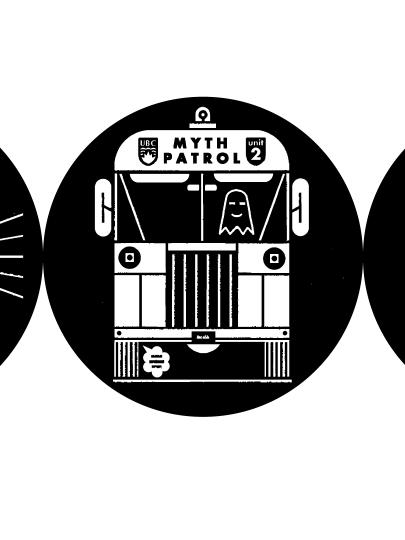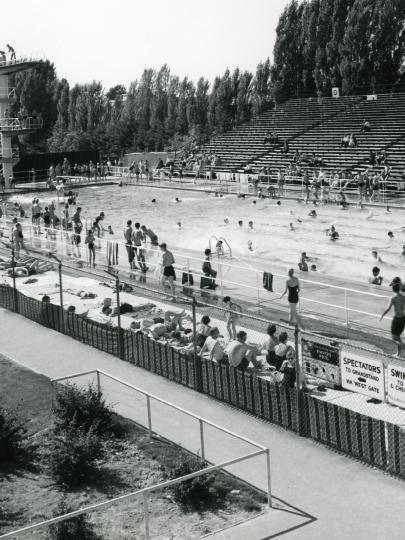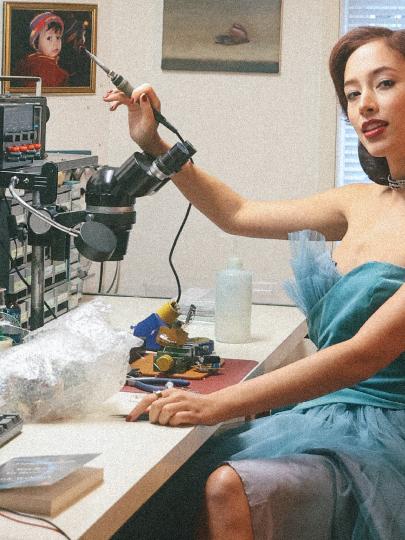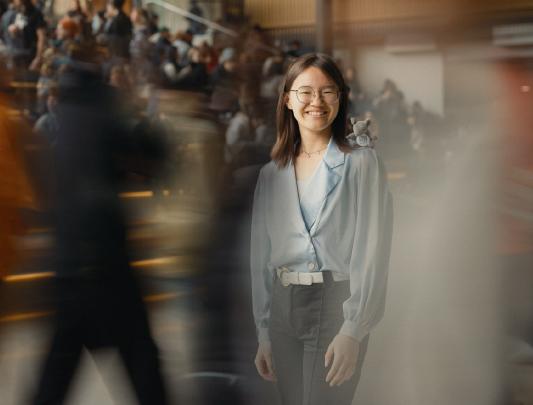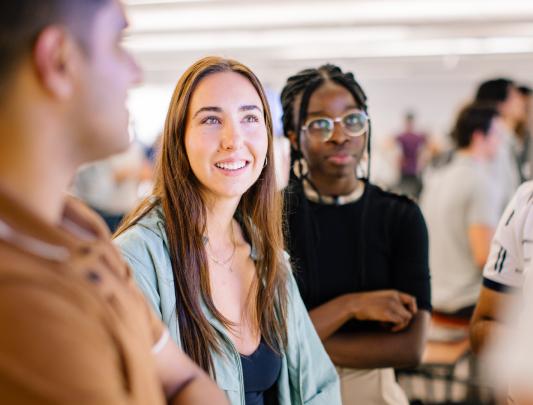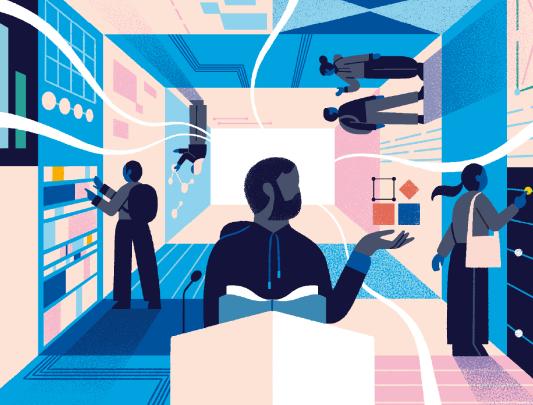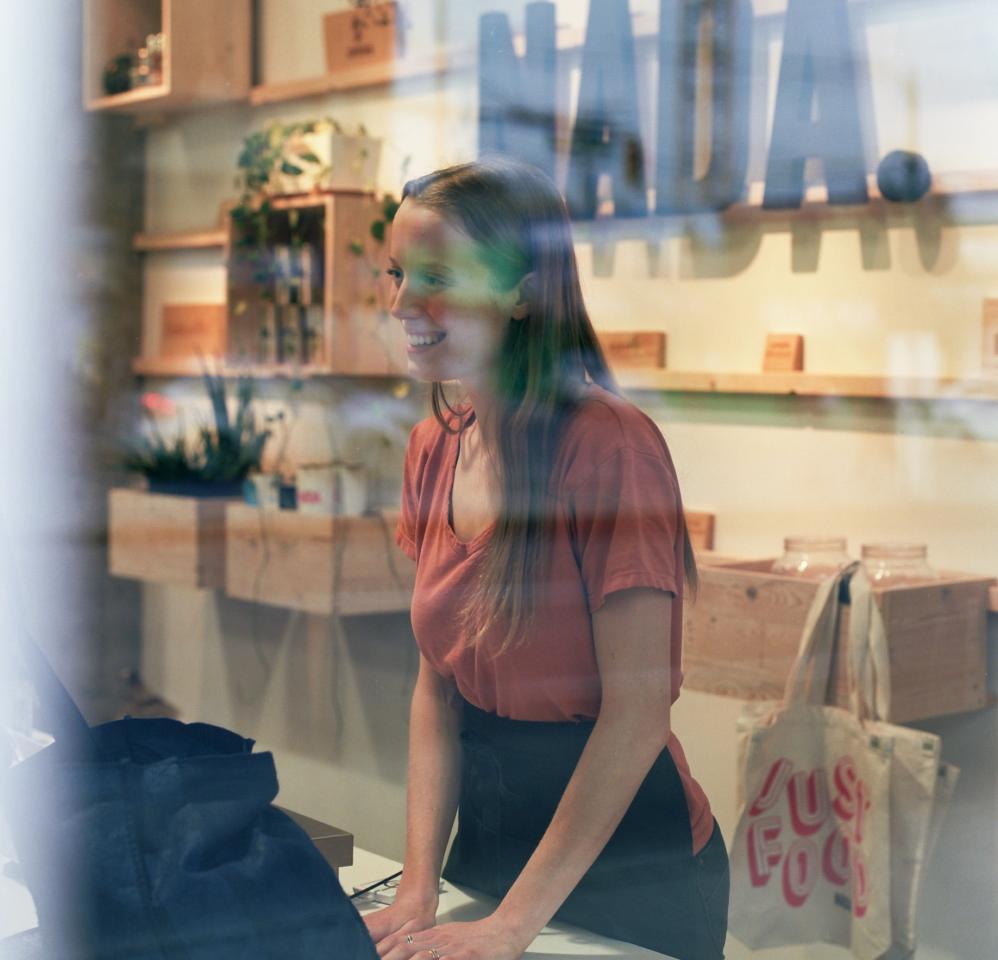
Alison Carr at the counter at Nada. Photo: Guy Ferguson
For a class assignment during her last year at UBC, Alison Carr created a map of where Vancouver’s garbage ends up. She was shocked to learn much of it was transported more than 300 kilometres northwest to a landfill in Cache Creek.
“That spurred something in me,” says Carr, who thinks the notion of “away” in “throwing away” is flawed. The garbage that is trucked away from our homes still persists in the environment, decomposing slowly in landfills and emitting greenhouse gases. At the same time, many cities, including Vancouver, scramble for landfill space to accommodate discarded items, many of which could have been composted or recycled.
Today, Carr is fighting plastic pollution and other waste, one grocery shopper and container at a time, as the co-founder and COO of Nada, Vancouver’s first zero-waste grocery store.
“Just Food,” proclaim big red-and-white letters painted on the store’s back wall. Customers can shop with their own containers, although during the covid-19 pandemic Nada is offering goods in deposit jars and recycled paper bags instead. In addition to items often sold by weight, like nuts and fruit, the store sells many other package-free products, from maple syrup to frozen berries to turmeric. Only a handful of items, such as milk in reusable glass bottles, are pre-packaged.
Carr leads Nada’s sourcing efforts. As well as minimizing the use of packaging, she considers the social and environmental footprint of everything they stock, balancing concerns like workers’ wages and greenhouse gas emissions.
“It’s case by case,” says Carr. “We’re not 100 per cent organic. We’re not only sourcing local. We’re not only sourcing 100 per cent package-free.” An organic item, for example, might not score highly enough on labour standards to be sold in the store.
Nada’s most resourceful suppliers turn waste into food. The store sells organic crackers made from imperfect vegetables left behind in Okanagan fields after harvest, and its café features baked goods made of spent grain from beer breweries.
Carr oversees educational events at the store, because she wants people to think critically about their food and choose products with the planet and their community in mind. She became conscious of such issues while growing up on Vancouver Island, where her parents focused on making the most of what they had and wasting as little as possible. “We always had a garden, always had a compost,” recalls Carr, whose early jobs in grocery stores prompted her to begin questioning how food was grown and made.
She didn’t realize this interest could turn into a career until 2015, when she was wrapping up her UBC arts degree and got wind of a marine biologist named Brianne Miller who was testing the idea of a package-free grocery store by coordinating zero-waste pop-up shops in Vancouver. Before long, Carr was interning on the project. She became indispensable and, eventually, an equal partner.
Nada opened its doors in June 2018 and has since diverted an estimated 650,000 containers or more from landfills, while building a strong following among eco-conscious Vancouverites. Perhaps most importantly, by breaking even just nine months after opening Nada has demonstrated that package-free groceries are a viable business.
But Carr and Miller are just getting started. They dream of opening more stores. There are also smaller-scale challenges – like sourcing package-free potato chips. Every company Carr has approached so far says it’s impossible. But that won’t stop her from trying.
“I’m not giving up,” she says with a grin.
